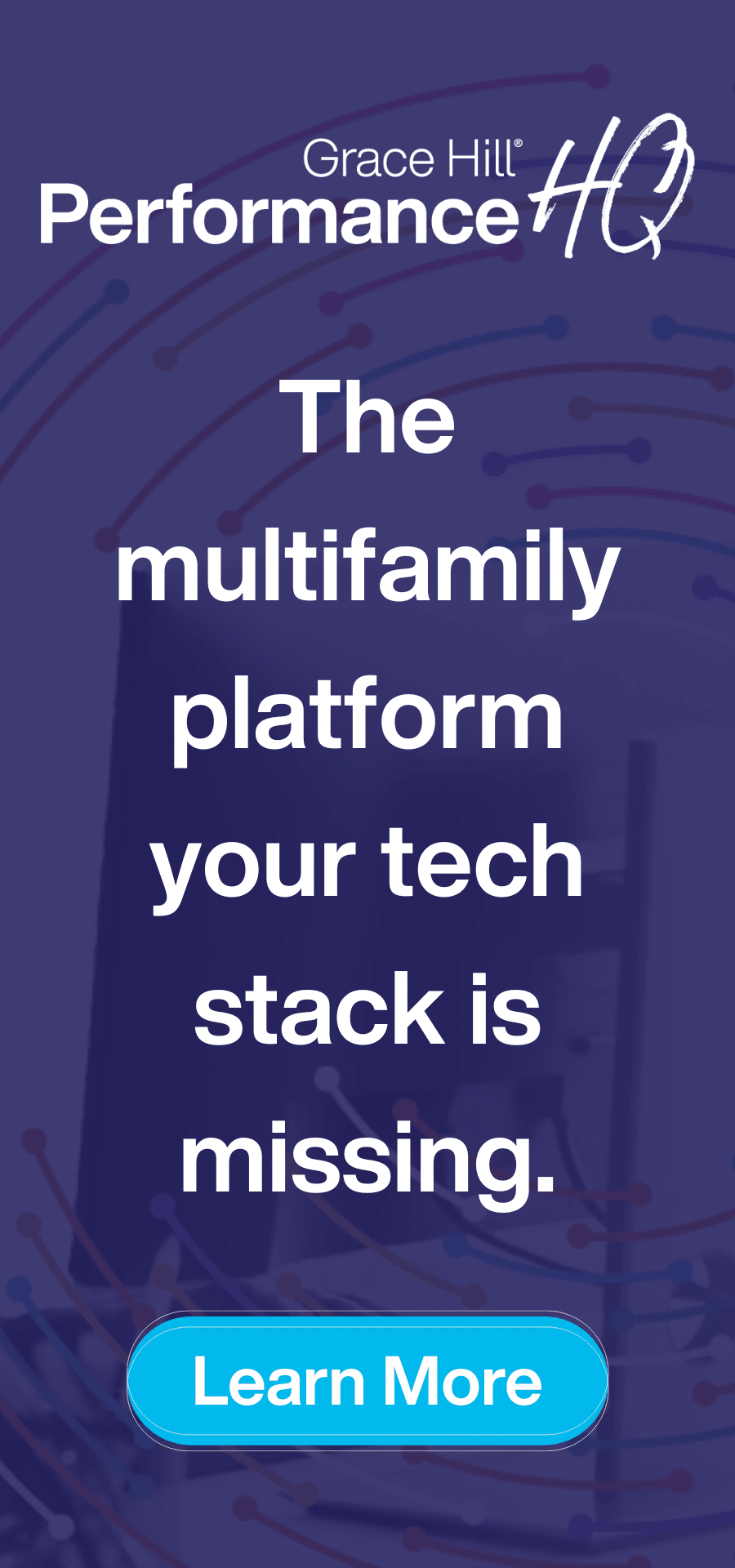AI in property management used to be considered a trend of the future, but it’s here — and here to stay. And with that, Chat GPT is leading the charge. Everywhere you turn, people are talking about ChatGPT.
Love it or hate it, ChatGPT is a highly disruptive technology that will forever change how we use artificial intelligence to get things done.
If you’re wondering where ChatGPT fits into the multifamily housing space, you’ve come to the right place. In this blog, we’ll break down what ChatGPT is, explore its Fair Housing implications, highlight the best use cases for property managers, and outline the limitations you’ll want to keep in mind before diving in.
Jump to a Section
- What is ChatGPT
- Fair Housing Concerns With AI in Property Management
- Best Uses for ChatGPT in Multifamily Housing
- Limitations of ChatGPT
- AI and the Future of Property Management
What is ChatGPT?
ChatGPT is a state-of-the-art language model developed by OpenAI that generates human-like responses to text-based inputs. It combines artificial intelligence (AI) and natural language processing (NLP) to process language and generate responses with impressive accuracy.
According to UBS, it’s the fastest-growing app in history, reaching 100 million users after just two months on the market, and it’s quickly becoming one of the most talked-about tools in tech.
To understand how ChatGPT fits into AI in property management, it helps to break down the two core technologies behind it: artificial intelligence and natural language processing.
- AI refers to computer systems designed to mimic human cognitive functions such as learning, problem-solving, and decision-making.
- NLP, a branch of AI, focuses on enabling machines to interpret and generate human language, allowing tools like ChatGPT to communicate in ways that feel remarkably natural.
Together, these technologies give ChatGPT the power to interact with users in real time, answering questions, generating content, and even assisting with customer service tasks in industries like multifamily housing.
As tools like ChatGPT become more integrated into AI in property management, they also raise important questions related to compliance and responsible use. Let’s explore the Fair Housing concerns property managers should keep in mind when using AI tools like ChatGPT.
Fair Housing Concerns With AI in Property Management
As AI innovation continues to advance, the United States has seen a growing number of legislative initiatives aimed at oversight, which have varied widely depending on the administration in power.
As reported by SIG (Software Improvement Group, “Artificial Intelligence was once the stuff of science fiction, but [has become] the fastest adopted business technology in history,” with one in four U.S. companies already using AI and another 43% planning to implement it soon.
Property management teams are understandably eager to harness tools like ChatGPT to boost efficiency, improve communication, and support leasing and resident services.
However, as it gains popularity and presents new opportunities for multifamily professionals, it also introduces compliance risks, particularly in regulated environments like housing. And without guardrails on its use, multifamily property managers need to think proactively about best practices.
Bias is a genuine concern for these tools. Fair Housing laws prohibit discriminatory practices based on race, color, religion, national origin, sex (including gender identity and sexual orientation), familial status, or disability.
Because tools like ChatGPT can learn and replicate patterns, including biases present in its training data, there’s a real concern that AI-generated content could inadvertently produce responses that run afoul of these laws. Even seemingly neutral prompts can lead to biased outputs if not carefully reviewed.
That’s why AI should never be used as a replacement for professional legal review, especially when generating documents like lease agreements, resident notices, or marketing language. Onsite teams should also avoid relying on AI tools to make decisions involving resident screening, eligibility criteria, or any process that directly impacts housing access.
Instead, use ChatGPT to streamline internal operations — such as drafting email templates, summarizing meeting notes, or brainstorming ideas — while maintaining human oversight and judgment where needed.
Given the potential for bias and the strict requirements of Fair Housing laws, it’s clear that AI tools like ChatGPT must be used with caution in the multifamily space. But that doesn’t mean they can’t add value.
When applied thoughtfully and with appropriate parameters, ChatGPT can be a powerful tool to enhance efficiency, improve team communication, and support day-to-day operations, without crossing into risky territory.
The key is knowing where AI excels and where human oversight remains essential. With that in mind, let’s explore some of the best and safest ways to use ChatGPT in multifamily housing.
Best Uses for ChatGPT in Multifamily Housing
When used thoughtfully, ChatGPT can be a valuable assistant for multifamily teams, enhancing productivity, streamlining communications, and supporting marketing efforts. While it’s not a substitute for legal expertise or human decision-making, the tool can take on a wide range of time-consuming tasks, allowing your staff to focus on high-value work that requires personal attention.
Here are several practical and responsible ways to integrate ChatGPT into your daily multifamily operations:
- Customer Service Support: Utilize chat functions to provide 24/7 customer service support for common resident and prospect inquiries. From answering FAQs to booking property tours, ChatGPT can help reduce response times and lighten the load on onsite teams, especially outside of regular business hours.
- Property Listing Generation: Save time by inputting basic property details (unit features, amenities, rent price, location, etc.) and letting ChatGPT generate polished listings for use on websites or ILS platforms. It can also help tailor descriptions to specific renter personas or platforms.
- Market Research Summaries: Feed ChatGPT current market data — such as occupancy rates, competitor pricing, or demographic trends — and use it to help draft internal reports or high-level summaries that inform business strategy. Additionally, you can use tools like HelloData to simplify benchmarking and performance tracking across portfolios, identifying inefficiencies and boosting NOI.
- Marketing Content Creation: Improve marketing speed and consistency by leveraging ChatGPT to brainstorm blog topics, write introductory content, suggest SEO keywords, and draft engaging subject lines or social media captions. This can support both in-house teams and third-party marketing partners. For help, check out our “Beginner’s Guide to Successful Property Management Social Media” or download our Social Media Tool Kit.
By clearly defining the boundaries of ChatGPT’s role and pairing it with human review, multifamily operators can safely unlock the efficiency benefits of AI in property management — without compromising compliance or quality.
Limitations of ChatGPT
While the use of AI in property management has opened up exciting new possibilities, it’s important to recognize that tools like ChatGPT come with notable limitations. Understanding these drawbacks helps property managers use AI strategically, rather than relying on it blindly.
False or Misleading Information: One of the most well-documented issues with ChatGPT is its tendency to generate inaccurate or misleading information, especially when responding to high-level, nuanced, or time-sensitive topics. Since the model draws from a broad range of internet data rather than verified sources, any AI-generated content should always be fact-checked, particularly when used in professional or legal contexts.
Lacks Emotional IQ: Another limitation is the tool’s lack of emotional intelligence and contextual understanding. Unlike a human, ChatGPT doesn’t interpret tone, body language, or situational subtleties. This means that any responses it generates, such as resident communication or marketing copy, may require significant human editing to sound empathetic, natural, or brand-aligned.
Limited Server Capabilities: Using AI tools for property managers, including ChatGPT, is still dependent on server capacity. During high-traffic periods, users may experience slower response times or temporary outages. For busy onsite teams or leasing professionals, this can disrupt workflows if AI is overly relied upon for time-sensitive tasks.
Despite these limitations, the role of AI in property management is expected to continue growing, reshaping how teams operate, make decisions, and serve residents in the years ahead. For now, it’s crucial to understand these limitations so that ChatGPT and other AI tools remain a helpful support — not a point of failure.
AI and the Future of Property Management
As we look to the future of property management, AI will no doubt continue to evolve and play a larger role in day-to-day operations. Tools like ChatGPT offer clear advantages, from drafting content to automating routine tasks, but they are not without risks. It’s essential to approach these tools with both optimism and caution.
Multifamily teams must remain vigilant, especially when handling sensitive information or communicating with residents. Responsible use starts with clearly defined policies, consistent training, and an understanding of where AI best fits within your operational strategy.
An experienced industry partner like Grace Hill can help you remove the guesswork. From crafting AI usage guidelines to delivering team training, Grace Hill ensures your organization adopts ChatGPT and other AI tools in a way that’s safe, compliant, and aligned with your company culture.
With the right framework in place, AI can be a powerful asset, not a liability, in the evolving landscape of property management.
Request a demo to learn more about our solutions!


 Customer Support
Customer Support




